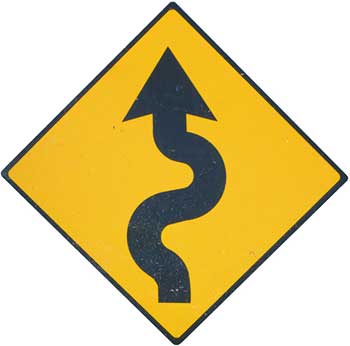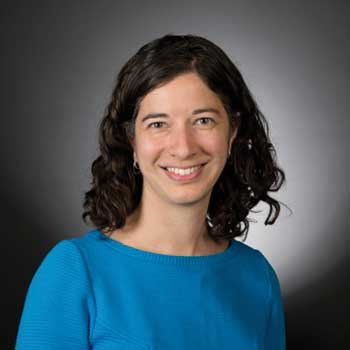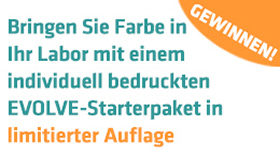Interview with Emma Frow
“I’m Interested in Different Types of Questions about Science”
Interview: Karin Hollricher, Labtimes 05/2015
For our irregular series “Alternative Careers in Science”, we talked to Emma Frow, who at some point realised cell biological research couldn’t excite her anymore. That’s when her career path took a detour.
Emma Frow is an assistant professor at Arizona State University. She started her career with studying Natural Sciences and doing a PhD in cell biology at Cambridge University. She left the lab to work as a sub-editor for Nature in London, and then turned to social sciences, gaining an MSc in Science and Technology Studies from the University of Edinburgh. We spoke with her about a life between science and society.
Lab Times: Emma Frow, obviously two souls are dwelling in your chest. Why did you study biology and even do a PhD, but then turn to social sciences?
Frow: Actually, I almost didn’t take biology at High School in Canada. But my mum suggested that it was probably a good idea that I take it. When leaving school, I wasn’t sure whether to study languages or science. In the North American university system you can combine arts and sciences, but this isn’t typical in the UK, where I went to university. In the end, I decided that I would rather keep languages as a hobby and it felt a bit harder to do science as a hobby. So I decided to study science as an undergraduate.
LT: You continued doing science. How did you pick cell biology as your favourite?
Frow: One day in college, I walked by a notice advertising summer student positions in a lab in the Department of Medicine. I thought it looked interesting and hadn’t yet made summer plans. So I started working in this lab and I really enjoyed it. I had a great summer and I even managed to publish a journal article from the research. I realised I had quite green thumbs when it came to lab work. At the end of the summer, my supervisor invited me back to do a PhD. It wasn’t something I had planned to do but I enjoyed the lab work, the people and the atmosphere in the lab, so I ended up staying there for my PhD.
LT: And what prompted you to move away from the lab?
Frow: Well, by the end of my PhD, the questions that I found most interesting were not ones that could be answered by doing scientific experiments. I was doing eight to ten hours a day of cell culture, repeating experiments under various conditions but I was starting to question whether the work was biologically relevant, whether it would make any difference. I found myself in a situation where the questions that excited me most were not “does that protein interact with this protein under these conditions?”, which is what some of my friends went to bed dreaming about. In Cambridge, people are often completely absorbed by their work and I wasn’t sure that I wanted to enter into competition with my fellow PhD students for the next round of postdoc and faculty positions; I just didn’t feel committed enough to laboratory work.
LT: Did you think you were a bad or, at least, not a really enthusiastic scientist?
Frow: No, I don’t think I ever felt like I was being a bad scientist. I think, often, people assume that if you leave the lab, you are not a good scientist. Well they can think what they want (laughs). That doesn’t really bother me. I’m still very interested in science but I’m just interested in different types of questions about science.
LT: So what were you dreaming of if it wasn’t your next experiment?
Frow: It took me quite a while to refine the questions that I’m really interested in. When doing my PhD, I found myself drawn to discussions with colleagues and friends about how science is funded, about the reproducibility of experiments, and so on. In my free time, I would go to talks and lectures by people who were communicating about science and the relationship between science and society, and in the final year of my PhD, I started volunteering for a science policy initiative based in London.
LT: How did you move into the field called social studies of science?
Frow: It took me a while to discover the field of science studies but once I found it, I knew it was what I had been looking for. As a scientist, the options that seemed most visible to me when I was thinking about moving away from the lab bench included science communication, history and philosophy of science, and bioethics. I wasn’t sure that any of these offered quite what I wanted. Science and technology studies is an interdisciplinary field that distinguishes itself from philosophy of science and bioethics by being explicitly concerned with practice, with looking at what scientists do, how they do it and why they do it, and what this means for the knowledge that is created and its relationship with society.
How did I move into this field? It has happened gradually. I started re-training when I moved up to Edinburgh in 2006, to take up a postdoc in a unit called the Genomics Policy & Research Forum. I have gotten several jobs thanks to friends and colleagues, who have spotted positions they thought sounded like me: I was working at Nature when a friend sent me a notice for the postdoc position in Edinburgh. A similar thing happened with my current position at Arizona State University. You could say that my jobs have tended to find me. Sorry for not being straight forward (laughs). You said you were interested in quirky career paths!
LT: So you got your first position in social sciences without any training in social sciences?
Frow: Not exactly, I would never have gotten a postdoc position as a social scientist without any training. But I was lucky that the Genomics Forum was a unique place. It was designed as a kind of institute or space that was charged with designing activities to bring together all types of stakeholders with an interest in genomics and the life sciences, including social scientists, biologists, physicians, members of the public, policy makers, industry, and so on. To help do this, the Genomics Forum hired postdocs with training in quite different fields. When I started, there were seven of us with very different backgrounds: economics, theology, microbiology, psychology, law, ethics and me. We were charged with identifying themes and developing activities to foster interdisciplinary dialogue. It was through this work that I really started engaging with social scientists: asking them about their research and asking them to explain to me why it mattered. After a couple of years, I was convinced that the sorts of questions that researchers in science and technology studies were asking, were things I was interested in exploring myself.
LT: What is your current job at the Arizona State University?
Frow: Again, it’s an unusual job. I have a split position, with 50% based in the School of Biological and Health Systems Engineering, and 50% in the Consortium for Science, Policy & Outcomes, which is one of the larger departments in the US with a focus on science policy and science studies. My office space and my ‘lab space’ are based in Engineering, and I have a remit to help embed policy and society considerations into the engineering teaching curriculum, and to encourage the growth of research collaborations between engineers and social scientists. These are things that several of the engineers and social scientists in my departments are interested in and already working on, and my position as a ‘bridge’ is a visible demonstration of this commitment.
LT: Thinking about the meaning and sense of science is time consuming. PhDs or postdocs, however, rarely have any spare time beyond lab work. Which strategies do you think are the most promising to encourage lab scientists to think outside of their box?
Frow: It’s a tricky problem. I think you have to start with an understanding of what scientists’ working lives are like – what constraints they face, what issues they encounter, and what kinds of questions might be relevant and interesting to them. You can’t force scientists to engage with broader questions but in practice most scientists have their own experiences of them, even if they’re in quite practical settings – for example, you should have some understanding of the broader context of your work to write a grant proposal that will be persuasive to your funder. I often start informally by just seeing who shows interest, finding out what interests them and then developing discussions from there. I’ve been at ASU now for six months and I have had three or four engineering students, who have approached me saying they are interested in policy aspects of their research. I’m starting with them and let’s see where we end up!
Another approach is to make engagement with the social dimensions of science compulsory. To give you an example from Edinburgh: about five years ago, the university was setting up a new Masters programme in Systems and Synthetic Biology and was looking for faculty to propose new courses. A colleague had been studying these fields for a while and decided to propose a social science course on Systems and Synthetic Biology for the students. It must have been a timely proposal because our course ended up being one of three compulsory courses in the degree programme. So, any student who takes that masters in Edinburgh has to spend 30 hours with us – lucky them! We approach the course by identifying issues that scientists in the field are talking about (e.g. in journal editorials and commentaries) and then providing a social science paper that analyses the same issues but offers a different perspective or way of understanding what is going on. It can be challenging for the students but, actually, the reviews of the courses are usually very good, and the students welcome having the time and space to think about their science in a different way.
LT: What issues do you study right now?
Frow: One of the research questions right now that I’m actively exploring is how knowledge from engineering and knowledge from biology are coming together in synthetic biology. There are some very interesting similarities and differences between how engineers and biologists ask questions and develop projects.
LT: Are there clear differences between biologists and engineers?
Frow: Well, they certainly present themselves as having different approaches to the world! Often, in synthetic biology we hear caricatures that biologists are more interested in understanding the world, while engineers are more interested in building with biology. This does shape the kinds of questions that researchers from different disciplines ask and the ways that they organise their practices in the laboratory. There are also differences in how engineers and biologists are trained as undergraduates, with engineers typically following more structured and rigid curricula than biologists. Engineering is a professional degree but you don’t need the same kind of formal certification to practice as a biologist.
LT: What other issues are you interested in, what would you like to study?
Frow: Right now I have several synthetic biology projects underway; there’s a great appetite among biological engineers for social scientists to be involved in the development of this field. I’m still very interested in image production and also in the role that journals play in the production of scientific knowledge. I’m not aware of any anthropological studies of how journals operate, I think that would be really interesting and fun to do.
LT: Don’t you miss the wet lab?
Frow: (laughs): You know, I have found a substitute for lab work: cooking! It’s not ambitious nouvelle cuisine but I like to try and test new recipes. I find it relaxing to come home from work and cook – it’s physical, repetitive and requires some precision. Cooking is like doing a complete experiment within less than an hour and the results are usually satisfying! To be serious though: I don’t imagine going back to work in a wet lab. But in my research I do get to go and spend time visiting and hanging in other labs, which is fun. It’s really the best of both worlds, getting to keep a foot in both natural and social sciences.
Last Changed: 30.09.2015








